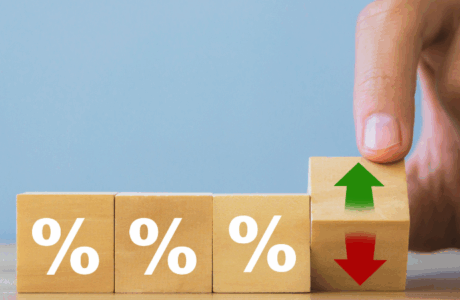With the talk of interest rates dropping, lots of homeowners are thinking about refinancing. Let’s look at the logistics of refinancing and how it might work for you.
Refinancing 101
When you refinance, you replace an existing mortgage with a new mortgage. You usually change the interest rate (often for a lower one), the loan terms, or both. You can refinance with the original lender or a new one.
Why do people refinance their mortgages?
The top reasons are:
- To lower monthly payments with a lower interest rate.
- To lower monthly payments by extending the loan’s length.
- To pay off a home faster. Switching from 30-year to 15-year terms often means higher monthly payments but less overall interest.
- To tap into a home’s equity. You can take out cash by borrowing beyond what’s owed with a cash-out refinance.
How much does refinancing cost?
Like a purchase mortgage, refinancing costs are typically between 2% and 6% of the current principal balance. If, for example, you owe $100,000 on a home, you can expect to pay between $2,000 and $6,000 to refinance.
What are the steps of refinancing?
- Have a clear goal. Are you looking to pay less each month? Shorten the loan’s length with larger monthly payments? You might wish to remove FHA mortgage insurance by refinancing with a conventional mortgage. Perhaps you want to go from an adjustable-rate mortgage to a fixed-rate one. The “why” of refinancing is crucial.
- Determine your equity. That’s the home’s value minus what’s owed on the mortgage. There are a few ways to determine home value, including online tools and professional appraisals.
- Talk to your lender. After you provide basic information, your lender can give you a loan estimate that outlines the estimated terms, payments, and costs of refinancing.
- Do the math. Compare the new loan terms with your existing ones. A mortgage refinance calculator can help you see how much money you’ll save on interest or monthly payments. You’re looking for the break-even point: when the accumulated savings exceed the cost of refinancing. It usually takes years to reach this point.
- Consider closing with cash. If you finance the closing costs, you pay interest on that amount. Paying those costs in cash could save you a significant amount of money.
The time may be right for you to take advantage of today’s attractive interest rates and refinance your mortgage. To find out how, speak with one of the loan experts at the Decker Group at First United. Call us at (972) 591-3097 or connect with us online.



















































Comments are closed.